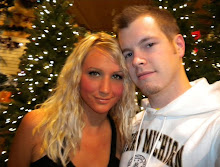 There is a list a mile long of endangered African animals, including gazelles, lemurs, hyenas, leopards, owls, snakes, toads, and more. Just looking at Lemurs, there are 39 different species of Lemurs that are currently endangered. And that’s JUST lemurs. Some of the animals that are endangered in Africa are not endangered in other areas in which they live. So why are so many animals in Africa endangered?
There is a list a mile long of endangered African animals, including gazelles, lemurs, hyenas, leopards, owls, snakes, toads, and more. Just looking at Lemurs, there are 39 different species of Lemurs that are currently endangered. And that’s JUST lemurs. Some of the animals that are endangered in Africa are not endangered in other areas in which they live. So why are so many animals in Africa endangered? People are the only thing to blame for the dwindling numbers of animals found in Africa, especially the European colonists. The colonists mercilessly killed animals for meat, skin, ivory (elephants), and sometime just for sport, not giving any thought to what that might mean for the future of these beautiful creatures. They also brought European livestock, which not only competed for food with natural herbivores but which also carried foreign diseases. So, much as we saw with Africans dying from foreign diseases brought by Europeans, the same thing happened with animals. The carnivores did not have any advantage over the herbivores, however. Many carnivorous animals, such as leopards and Ethiopian wolves, were often killed out of fear. People were also quickly wiping out the gazelle, red deer, and other natural sources of food for the carnivores, meaning there was less food for them. Sometimes, they would make up for this loss of food and attack European livestock, which would then bring them foreign diseases which ended up killing them anyway.
People are the only thing to blame for the dwindling numbers of animals found in Africa, especially the European colonists. The colonists mercilessly killed animals for meat, skin, ivory (elephants), and sometime just for sport, not giving any thought to what that might mean for the future of these beautiful creatures. They also brought European livestock, which not only competed for food with natural herbivores but which also carried foreign diseases. So, much as we saw with Africans dying from foreign diseases brought by Europeans, the same thing happened with animals. The carnivores did not have any advantage over the herbivores, however. Many carnivorous animals, such as leopards and Ethiopian wolves, were often killed out of fear. People were also quickly wiping out the gazelle, red deer, and other natural sources of food for the carnivores, meaning there was less food for them. Sometimes, they would make up for this loss of food and attack European livestock, which would then bring them foreign diseases which ended up killing them anyway. We often hear of the genocide of Africa during the period of colonization. But what many don’t realize is that the African wildlife suffered an even worse genocide. And unfortunately for animals, it is not as easy for them to re-populate, especially since more people means less natural habitat. But there are things that people can do to help, and hunting/poaching is NOT the answer. If people stopped hunting gazelle and other herbivores, then they would re-populate, taking themselves off the endangered list. This does not mean they would over-populate to an out-of-control state. This means that there would FINALLY be enough food for the carnivores, and then they would no longer be endangered. The natural order would return. Because this is the way things were before humans came and messed everything up. It’s not right, and quite frankly, it makes me sick.
We often hear of the genocide of Africa during the period of colonization. But what many don’t realize is that the African wildlife suffered an even worse genocide. And unfortunately for animals, it is not as easy for them to re-populate, especially since more people means less natural habitat. But there are things that people can do to help, and hunting/poaching is NOT the answer. If people stopped hunting gazelle and other herbivores, then they would re-populate, taking themselves off the endangered list. This does not mean they would over-populate to an out-of-control state. This means that there would FINALLY be enough food for the carnivores, and then they would no longer be endangered. The natural order would return. Because this is the way things were before humans came and messed everything up. It’s not right, and quite frankly, it makes me sick.And while it may be particularly bad in Africa, this problem exists worldwide. In fact, it’s even worse in the U.S. How to help:
World Wildlife Fund
Defenders of Wildlife




